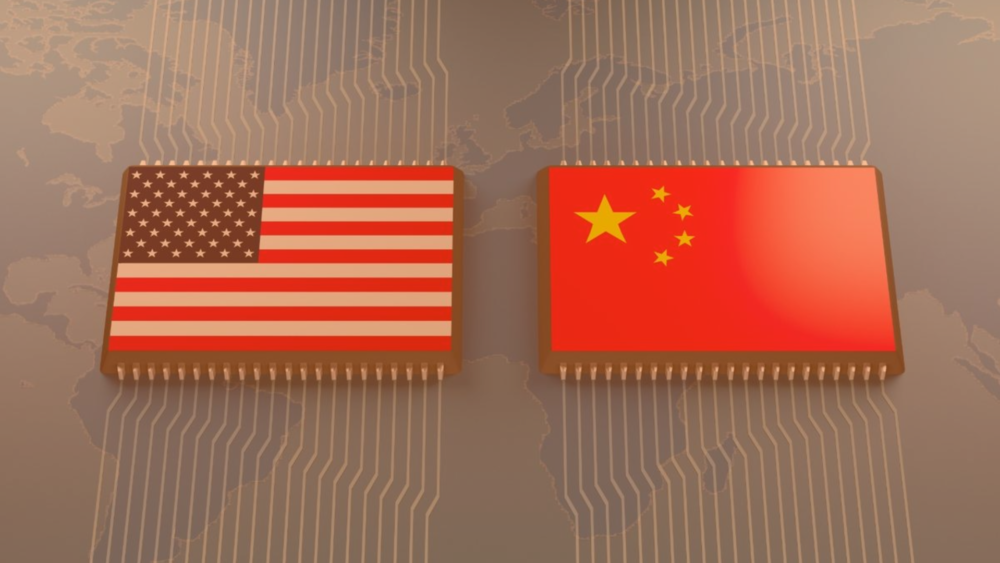A seismic shift in the global AI landscape has just unfolded. DeepSeek, a Chinese startup that barely existed two years ago, has matched – and some argue, surpassed – the AI models of America’s top tech firms. The kicker? It did so while remaining open source, running on Chinese-made chips, and costing a fraction of what Silicon Valley giants spend.
Within hours of its release, DeepSeek’s new model wiped nearly a trillion dollars off the value of US tech stocks. This wasn’t just a competitive setback for American AI – this was a Sputnik moment.
The new Sputnik moment
DiEM25’s Yanis Varoufakis captured the significance of this event, calling it “our generation’s Sputnik moment.” Just as the Soviet Union stunned the United States in the 1950s by launching the first satellite into space, DeepSeek has shattered the myth that China lags behind in AI development.
“Up until last week, both the American government and Big Tech assumed that China was eons behind them in developing artificial intelligence technology,” Varoufakis noted in the DeepSeek podcast. “And then DeepSeek comes in with a very cheap model that is just as effective, maybe more efficient, than OpenAI’s much-hyped ChatGPT.”
This revelation fundamentally disrupts the ongoing tech cold war between the US and China. More importantly, it challenges the assumption that AI development must be monopolised by a few private corporations.
The collapse of Silicon Valley’s AI business model
Arnaud Bertrand, an entrepreneur and commentator, framed it perfectly: “DeepSeek’s release is like offering a free internet when OpenAI’s business model was to privatise the whole internet for themselves.”
OpenAI’s entire strategy was built around monopolising AI access, selling it as a premium service to those who could afford it. But DeepSeek has obliterated that vision. It has democratised access to AI models, allowing developers and researchers worldwide to improve on its code freely.
“We are at the beginning of a new internet,” Bertrand explained. “AI will replace large portions of the web as we know it, and DeepSeek just ensured that this new digital landscape won’t be entirely privatised by Silicon Valley.”
Who owns AI? And who controls it?
AI is no longer just about chatbots or writing tools – it is the backbone of modern industry, shaping economies, labour markets, and governance. Who controls AI could very well control the trajectory of global power.
“AI isn’t just an economic tool, it’s a political one,” Varoufakis warned. “DeepSeek’s rise challenges not only Silicon Valley but the entire structure of AI development, because it disrupts the capitalist model that relies on commodifying AI and restricting access.”
DeepSeek’s disruption is a massive blow to companies like OpenAI, but it reinforces the dominance of the tech platforms that integrate AI deeply into their user ecosystems, such as Amazon, Google, and Alibaba. “Big Tech’s true power lies in its ability to extract data and modify human behavior,” Varoufakis emphasized. “That hasn’t changed – it may have just been enhanced.”
A fork in the road: Open AI vs. Open-Source AI
The battle for AI is not just a geopolitical struggle between the US and China – it is also a fight between two competing visions of technology. On one side, we have closed AI – an arms-race mentality where a few corporations hoard AI capabilities for their own profit. On the other side, we have open-source AI, where AI models are freely available to anyone who wants to build upon them.
Bertrand argued that this battle is about much more than just tech: “AI might replace the internet as we know it, and right now we’re in a moment where it’s still possible to shape its future.”
What can we do?
So where do we go from here? How do we stop AI from becoming just another tool of corporate and state control?
For activists, developers, and policymakers, the fight for open-source AI is the fight for a future where technology serves the many, not the few. Here’s what we can do:
- Support open-source AI projects: DeepSeek’s success proves that open-source AI can compete at the highest levels. Developers must continue contributing to open AI projects, ensuring they remain powerful alternatives to proprietary models.
- Legislate against AI monopolisation: “The question isn’t just about who uses AI, but about who owns it,” Varoufakis stated. Governments must recognise that AI is a public good and take legislative action to prevent its monopolisation by private corporations.
- Demand transparency in AI models: AI is increasingly being used to shape our information ecosystems. “AI remains a powerful tool,” Bertrand noted, “but if a handful of companies own the tools that generate our knowledge, they will shape society in their own interests.”
- Resist AI as a tool of surveillance: “We laugh when people say Chinese AI is a surveillance tool, as if Western AI isn’t doing the exact same thing,” Varoufakis pointed out. We must resist all attempts to turn AI into a surveillance mechanism, whether by corporations or governments.
The stakes are high. AI will either be a commons, a tool shared freely among humanity, or a means of deepening existing inequalities and entrenching the power of a few.
“AI has the potential to reshape the world, and it will, one way or another,” Bertrand concluded. “The only question is: will we control it, or will it control us?”
Do you want to be informed of DiEM25's actions? Sign up here















